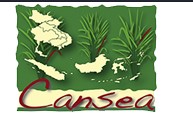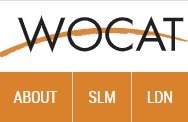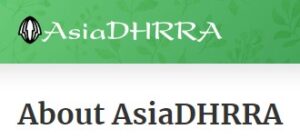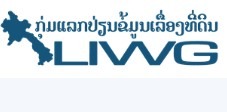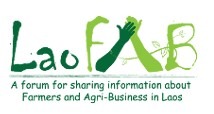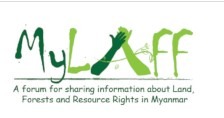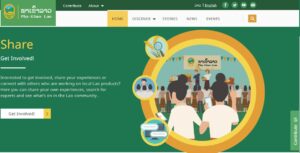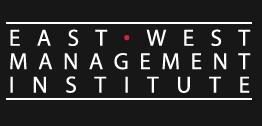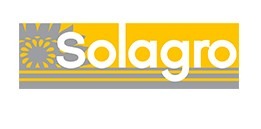NETWORKS
The Conservation Agriculture Network in South-East Asia (CANSEA)
CANSEA network is to optimize the similarities and the complementarities between countries and institutions in the Mekong region, to improve on one hand the efficiency of research carried out by the various projects and on other hand to go over the “pilot” diffusion of CA systems in small-scale households in Southeast Asia.
World Overview of Conservation Approaches and Technologies (WOCAT)
WOCAT is a global network on Sustainable Land Management (SLM) that promotes the documentation, sharing and use of knowledge to support adaptation, innovation and decision-making in SLM.
The Asia Indigenous Peoples Pact (AIPP)
is a regional organization founded in 1992 by indigenous peoples’ movements. AIPP is committed to the cause of promoting and defending indigenous peoples’ rights and human rights and articulating issues of relevance to indigenous peoples. At present, AIPP has 46 members from 14 countries in Asia with 18 indigenous peoples’ national alliances/networks (national formations), 30 local and sub-national organizations. Of this number, 16 are ethnic based organizations, six (6) indigenous women and four (4) are indigenous youth organizations and one (1) organization of indigenous persons with disabilities.
Asian Partnership for the Development of Human Resources in Rural Asia (AsiaDHRRA)
is a regional partnership of eleven social development networks and organisations in eleven Asian nations that envisions Asian rural communities that are just, free, prosperous, living in peace and working in solidarity towards self-reliance. Tracing its history from the founding workshop on the development of human resources in rural areas in 1974 in Swanganiwas, Thailand, the DHRRA network’s mission is to be an effective promoter and catalyst of partnership relations, facilitator of human resource development processes in the rural areas and mobilizer of expertise and opportunities for the strengthening of solidarity and kinship among Asian rural communities. It is dedicated to the empowerment of farmers in the Asian region.
The Land Information Working Group (LIWG)
is a civil society network that was set up in 2007. The LIWG consists mostly of international and local civil society organization staff and other individuals working on land issues in Lao PDR. The group has over 80 Core Members representing nearly 40 organizations, and over 180 individual Supporting Members. The LIWG activities are implemented through the LIWG Secretariat which is overseen by the Committee, elected from among the member organizations.
PORTAL
The Open Development Initiative (ODI)
is an open data and information network developed by EWMI that sheds light on development trends in the Lower Mekong Basin. The lower Mekong basin is a trans-boundary ecosystem shared by 6 countries providing a central livelihood and food security to 65 million people as the largest inland fishery in the world. ODI’s objective is to increase public awareness, enable individual analysis, improve information sharing, and inform rigorous debate – all contributing to the sustainable development of the region from a social, economic and environmental perspective.
Lao Civil Society (Lao CSO)
is an open information platform to serve stakeholders contributing to development in Lao PDR. LCSW is aimed at Lao Civil Society Organisations and others seeking to interact with them including International Non-Governmental Organizations, Development Partners, donors, and consultant/individuals working in this sector.
DOC REPOSITORY
LaoFAB document repository
LaoFAB is a forum for sharing information about Farmers and AgriBusiness in Laos. Members include Government officials, staff of donor agencies and NGOs, project experts, academics and business people.
MyLAFF document repository
MyLAFF is a forum for sharing information about Land, Agribusiness, Forestry issues in Myanmar. Members include staff of donor agencies and NGOs, CSOs, project experts, academics and business people.
Pha Khao Lao
The Pha Khao Lao Agrobiodiversity Resource Platform aims to consolidate the wealth of written and oral knowledge in the country so it can be readily accessed and used by students, researchers, develop professionals, decision-makers, local communities and the private sector. The platform is meant to be interactive, insightful and useful to those who use it.
Lao44 (Lao language only)
44 means a fundamental right of Lao citizens as stated in article 44 of the Lao Constitution: ” Lao citizens have the right and freedom of speech, press and assembly; and have the right to set up associations and to state demonstrations which are not contrary to the laws”. This website is a service of CLICK I4Dev which promote access to information for development in order for the public to learn and use the information to improve their livelihoods and their work. All documents and videos are contributions from government organizations, international organizations, civil society organizations, private sectors, educational institutes as well as individuals.
FORUM
Agricultural Transition
This web-page has been created by a common effort by many organizations. We want to show the wide range of sustainable agricultural practices, and that peasants and other small scale food producers and providers can nourish a growing population, preserve the environment and contribute substantially to stop the climate change.
WEBSITES
East-West Management Institute (EWMI)
The East-West Management Institute works to strengthen democratic societies by bringing together government, civil society, and the private sector – to build accountable, capable and transparent institutions. Founded in 1988, as an independent not-for-profit organization, EWMI’s work began the year before the wall came down, with the challenge of crafting functioning democratic systems in transitioning post-soviet societies. We learned – in our initial work across central and eastern europe, and in the decades that followed around the world – that a collaborative approach involving civil society, government and the private sector is the key to ensuring that citizens exercise their rights, and institutions are accountable for protecting them.
Working Group on Agriculture (WGA)
Established in 2002, the Working Group on Agriculture (WGA) has been working toward the implementation of priority projects under the Core Agriculture Support Program (CASP). The working group, which includes senior agriculture officials of GMS countries, currently implements and monitors the Strategy for Promoting Safe and Environment-Friendly Agro-Based Value Chains and Siem Reap Action Plan, 2018-2022. In tandem with the WGA Secretariat, WGA coordinators, who are senior agriculture ministry officials, are responsible for supervising the implementation of the strategy and action plan, and for reporting regularly to their respective Agriculture Ministers on the status.
Solagro
Solagro is a leader in France in the design of evaluation tools and indicators, assisting farmers in shifting their production methods towards serving economic viability and the environment. Solagro also leads the practical development of agroecology in France, notably through its support to various agro-ecological infrastructure projects (hedges, orchards…).
BLOGS
Welcome to the Kremen Lab Page
As a conservation biologist, I seek mechanisms for preventing or reversing the loss of biodiversity, which is one of the greatest environmental challenges facing humanity in the 21st century.

